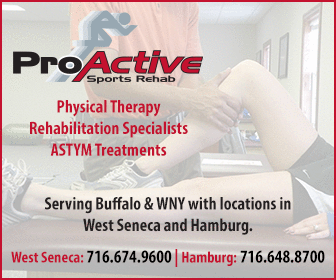(ProActive Sports Rehab offers a weekly column promoting health, fitness and physical therapy. Please be sure to check back each week for a new topic!)
Every 42 seconds, someone in the U.S. has a heart attack — but you needn’t be among them.
Consider this: Julie Kubala was one of those statistics. She’s working now to ensure she doesn’t become a different stat — about 21 percent of women and 17 percent of men age 45 and older will have another heart attack within five years of their first one.
To help, the American Heart Association (AHA) launched a new educational campaign aimed at reducing the number of repeat or recurrent heart attacks by arming survivors with simple but effective steps.
“Our message is simple: Don’t wait for a second heart attack,” said Alice Jacobs, M.D., former AHA president and chair of the advisory group overseeing the new initiative. “Research shows there are some very clear things you can do to lower your chances of having another event.”
• Take medication as directed —More than a third of heart disease patients don’t follow their medication treatment plans; more than a third of medication-related hospital readmissions are caused by people not taking their medicine as they should.
• Have a follow-up doctor’s appointment — Heart attack survivors who don’t have a timely follow-up with their doctor may be up to 10 times more likely to be rehospitalized.
• Complete a cardiac rehabilitation program — One study found that heart patients who completed cardiac rehab were 42 percent less likely to die of a second heart attack than those who didn’t.
• Manage risk factors — Reducing risk factors such as physical inactivity, high blood pressure, high blood cholesterol, diabetes, smoking and obesity lowers the chance of having a heart attack or needing heart surgery.
• Develop a strong support system — People with low perceived social support have worse outcomes after a heart attack.
Kubala goes to cardiac rehab and is learning the importance of being proactive to take control of her health.
“I knew my family history of high blood pressure, high cholesterol, diabetes. What hadn’t really hit me was our family history of heart disease or how all of that can be related,” she said. “I couldn’t see the forest for the trees. Now I’m determined to do all I can to get healthy and to stay healthy, but it’s not easy to keep on top of everything.”
Dr. Jacobs, Professor of Medicine and Vice Chair for Clinical Affairs in the Department of Medicine at Boston University Medical Center, said making it easier for patients and their health care providers to know, understand and follow research-based clinical guidelines is a key element of the association’s Guideline Transformation and Optimization initiative, under which the new heart attack campaign falls.
“Having a heart attack can obviously be very traumatic, and afterward, patients and families can have a difficult time processing all that has happened and all that needs to happen to get better,” Dr. Jacobs said. “All the questions to answer, the instructions to remember and the medical terms to understand can be overwhelming. We want to help by providing simple, easy-to-follow steps, easy-to-use tools and trackers that can help people not just recover fully from this heart attack but prevent a future one.”
Information and tools for patients, their families and their health care teams are developed at www.Heart.org/HeartAttackRecovery.
The American Heart Association’s Guideline Transformation and Optimization initiative is a comprehensive, coordinated approach to accelerate guidelines into clinical practice. By activating medical professionals to leverage science faster and measure clinical effectiveness, while empowering patients and caregivers to better manage health and participate in care coordination, the American Heart Association will help to drive better health outcomes and patient satisfaction. The initiative is supported by an educational grant from AstraZeneca.
— NAPS
ProActive Sports Rehab, with offices in Hamburg and West Seneca, offers one-on-one physical therapy and rehabilitation services. For more information, please visit http://proactivesportsrehab.com or call 674-9600 (West Seneca office) or 648-8700 (Hamburg office). You can also follow ProActive Sports Rehab on Facebook at www.facebook.com/ProActiveSportsRehab for frequent updates.




